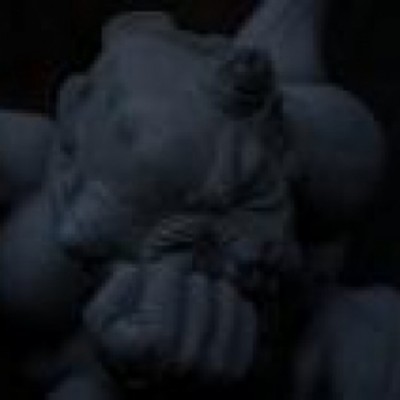This blog post was created in collaboration with an AI assistant developed by Perplexity AI to help refine, expand, and structure the ideas presented.
While walking the dogs recently, I found myself reflecting on the three common beliefs about what happens after death:
- You keep repeating the cycle of life over and over (reincarnation or eternal recurrence)
- There is a single judgment leading to eternal consequences (heaven, hell, or other eternal fate)
- It’s a one-time event—one life, then nothing more
The first and the last both feel logically consistent because they each rely on a single frame of reference: infinity on one end, and a fleeting moment on the other.
The idea of eternal recurrence embraces infinity, an endless loop. The notion of one life and then nothing is a brief blip in time, a simple end.
But the middle view, mixing a single, blip, and eternal consequences, doesn’t hold as well under scrutiny. It attempts to combine a transient event with an infinite outcome, which presents logical and philosophical tensions.
Control, Conformity, and the Cost of Ultimate Consequences
What struck me most during this reflection is how the idea of ultimate consequences functions as a form of control, or, at minimum, a powerful incentive to conform rather than to truly learn or grow. This might have been as designed, or, as I suspect, an observation later exploited.
When beliefs carry infinite weight, they become powerful drivers of behavior, sometimes in constructive ways, but often in ways that constrain us.
The Perfectionism Connection
This may be obvious to some, but a new insight emerged for me around the connection between the model of eternal consequences the perfectionism many of us know too well.
If your worldview is shaped by the belief in one life with eternal consequences, every mistake feels infinitely consequential. This creates a psychological landscape of constant vigilance and self-monitoring, where perfectionism becomes a survival strategy—an unconscious effort to reduce risk and avoid failure.
This lines up with ideas I’ve explored about perfectionism and behavior in [“The Importance of the Jiggle”](https://schuchert.github.io/qigong/2024/01/22/TheImportanceOfTheJiggle.html, which touches on how reducing rigidity and embracing some chaos can open new pathways for growth. When we’re locked in perfectionism, we lose the ability to experiment, fail, and learn—the very things that drive real growth.
I also touched on this in “Perfection Is a Journey, Not an Event”, where I reflected on re-reading Are Your Lights On? as an entirely different person. That shift in perspective came alongside a gradual loosening of perfectionist thinking.
The Journey Away from Eternal Stakes
Having started with the belief in eternal consequences, I’ve noticed a correlation between distancing myself from that belief and a reduction in my own perfectionism. It feels like shedding those infinite stakes frees me to embrace imperfection and growth in a more genuine, less fearful way.
This shift has parallels with some of my teaching notes on flexibility and movement, such as the balance between control and release explored in “Science of Stretching for Tai Chi and Bagua”, where letting go of tight control allows greater fluidity and breakthrough. The same principle applies to the mind: rigidity, physical or mental, prevents flow and adaptation.
This idea also connects to my work in “The Mechanics of Setting an Intention before Meditation”, where I explored how shifting our internal framework can have profound impacts on our experience. When the intention changes from “avoid mistakes” to “learn and grow,” the entire quality of our attention transforms.
A Broader View: From Skepticism to Openness
My journey through these beliefs has taken me from religious conviction, through atheism, and closer now to a Daoist perspective. What I’ve come to embrace is a kind of epistemological humility: I don’t know. Neither does anyone else. So be kind.
This perspective has been shaped by decades in software engineering, where I’ve learned that certainty is often an illusion. It’s been deepened through practices like Tai Chi, Yoga, Qigong, breath work, and deep flexibility work, all of which teach that the body and mind are far more complex and mysterious than our rational minds often want to admit.
My essay “My Intentional Practices Bio” outlines some of these turning points and how they’ve shaped my approach to learning and growth. Each practice has contributed to a worldview that is less about getting things right and more about staying curious, humble, and open.
The Gift of Uncertainty
Ultimately, the beliefs we hold about existence and consequence deeply shape how we relate to ourselves and the world. The shift from believing in eternal judgment to embracing uncertainty has been liberating. It’s allowed me to approach both my technical work and my personal practice with more experimentation, more compassion, and more genuine learning.
This isn’t to say that belief systems are unimportant—they absolutely shape us. Rather, it’s to suggest that examining them, questioning them, and remaining open to evolving them is perhaps one of the most important practices we can undertake.
Ultimately, I believe reality is fundamentally indescribable. Therefore, every belief system is a best a poor approximation to what is. Where a belief system helps you, use it. Where it doesn’t make adjustments. However, as you do, question whether this is out of convenience or conviction.
By becoming aware of these underlying mental models, we can start to loosen the grip of perfectionism and live with more openness, curiosity, and acceptance. And in doing so, we might find that we’re not just changing our beliefs about what comes after—we’re changing how we live right now.
 Collected works and current thoughts
Collected works and current thoughts
